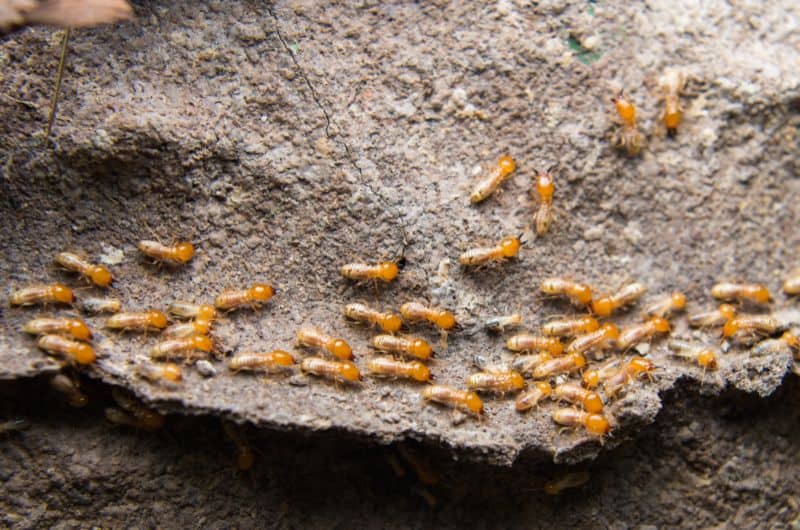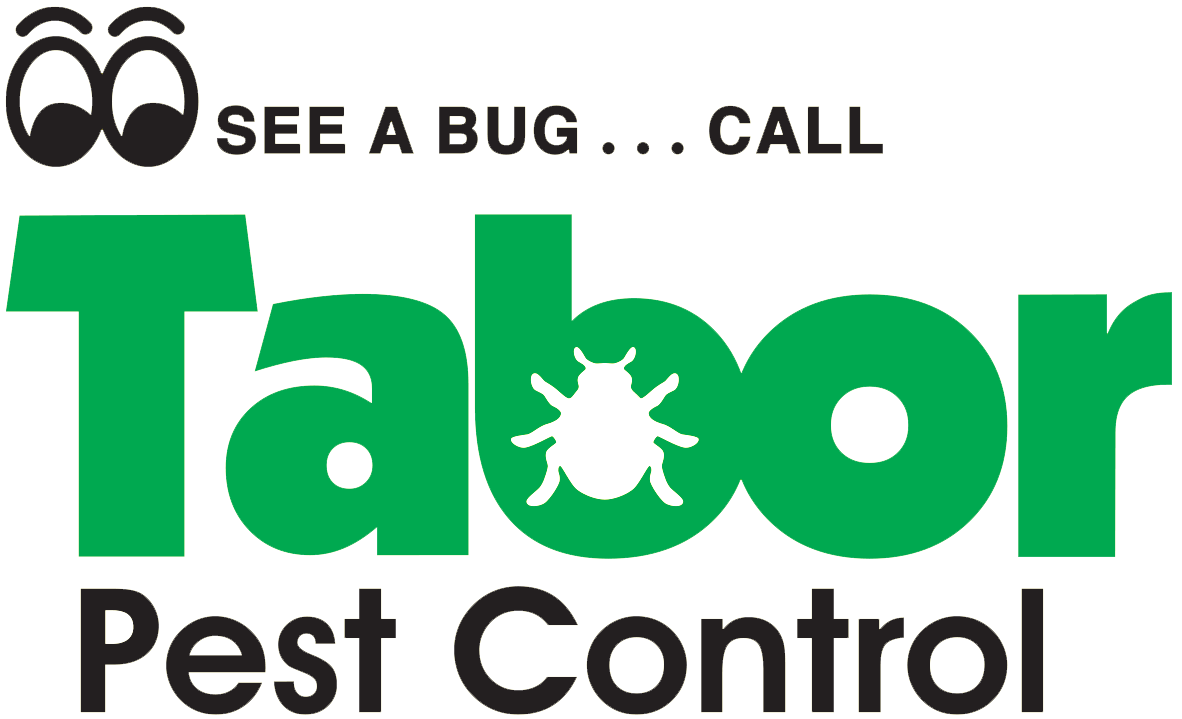Termite Troubles: How To Spot & Treat Termite Infestations

Termites cause one of the most troublesome pest infestations the U.S. faces each year, leading to an estimated $30 billion in damage, including crops and furniture.
Spring and summer are the swarming seasons for termites, but these little pests are clever and can stay hidden for years without significant notice.
The scary part is that once they infest your home, termites are quick to multiply and spread within a few days. So, taking precautions against termites is of utmost priority, which can be done by focusing on the tell-tale signs and using timely, effective treatment to deal with them.
Termite infestation
Termites inflict extensive home damage annually in the U.S., with populations in every state except Alaska.
On average, termite damage can cost American homeowners about $3,000 in repairs.
Alabama and Georgia are hot spots for termite infestation, so much so that Alabama ranks #1 in Termite Infestation Probability Zone, which is considered very heavy.
On the other hand, it’s estimated that 1 in 5 homes in Georgia has been infested by termites each swarming season.
With such a high infestation probability, knowing how to identify a termite infestation before it causes major damage to your property is vital.
How can you tell if you have termites in your home?
The thing with termites is that they can easily stay hidden. While they’re eating away at your home from the inside, you wouldn’t know anything is wrong until a few months or even years later.

The physical warning signs to recognize a termite infestation can include:
- Discolored or drooping drywall
- Peeling paint on the walls that looks like water damage
- Wood that sounds hollow upon knocking on it
- Small round holes in your furniture
- Wood that looks like it’s about to collapse or snaps on its own
- Squeaky wooden floorboards
- Tiles loosen from the added moisture that termites cause
- Piles of small transparent wings which termites often leave
- Mud tubes or small accumulations of wood shavings around or on your furniture
- Mounds of dry-wood termite pellets often resembling small piles of salt or pepper
Termite species in Georgia and Alabama
In Georgia, you can find three common types of termite species infesting your home including:
- Eastern Subterranean termite
- Formosan termite
- Drywood termite
The Eastern Subterranean termite is most commonly found infesting homes in Georgia, among the three species mentioned above.
The Formosan species is considered to be very aggressive, while the Drywood species is rarely found here as they mainly dwell around the Metro Atlanta area.
Both the Eastern Subterranean and Formosan are in-ground dwellers and enter your home through the flooring.
They are so tiny they can easily squeeze through gaps less than a one-sixteenth inch wide.
You will never be able to locate them on the ground surface as their survival depends on the constant need for water and moisture, thus locating them underground.
In Alabama, you can find Drywood and Subterranean termite species damaging homes. They generally swarm on a warm day after rainfall, so spring and summer are their swarming seasons.
How do I know it’s termites?
The termites that cause an infestation in your home are the ‘workers’ in the termite colony. Then there are ‘swarmers’ or ‘winged reproductive’ who are the colonists as they form new colonies.
You might be able to spot these as they find suitable locations for new colonies by going around.
Focusing on its physical attributes helps differentiate a termite from other insects, such as flying ants.
📌 Termites have a straight antenna, similar-sized, paired wings, and a thick but straight waist.
How can I prevent termite infestations?
Termites are tiny and so finding them or even looking for signs that they exist in your home can be tricky.
In fact, most people aren’t even aware they have a termite infestation until they see massive damage. Or the termite population becomes so significant that you see them flying or roaming around your house.
But there are ways you can prevent the infestation from happening again or follow a few steps to prevent termites from growing more.
- Fix any leaks in your home immediately.
- Keep your vents free, and if there’s any blockage, fix it immediately.
- If you have any trees or a yard around your house, maintain it properly, as overgrown trees around the home can allow infestation.
- If you have cracks around your home or between wooden floorboards, fill them up and close all the small gaps.
- If you have wooden piles around your house, dispose of them.
- Don’t allow any other kind of clutter around your home which might attract termites.
Most importantly, a regular inspection of your home is necessary. Because even if you try to look out for signs of termite infestation in your home, you might not come across their existence until they grow in abundance and lead to some damage to your property.
The only way to ensure they don’t form their colony is by getting a professional to do regular inspections in and around your home.
This is where Tabor Pest Control services will come in handy. Our experts have the proper knowledge and training to find termites and effectively treat them.
How can I treat a termite infestation?
1. Non-chemical treatment
When people hear that a termite infestation needs treatment, they automatically think that chemical treatment is what they’ll require. But that’s not true for every situation.
Sometimes, non-chemical treatments are way more effective. Finding the best treatment for your home will depend on multiple factors. But for now, let’s look at the non-chemical ways you can eliminate termites in your home.
- Using steel mesh and sands of particular sizes around the home has proved effective.
- Some biological control agents like nematodes and fungi are also promising in some cases.
- In high-alert-infested areas such as Alabama and Georgia, it’s most important to use physical barriers when constructing your house.
2. Chemical treatment
Using chemicals isn’t the only way to eliminate termites. It depends on how bad the infestation is in your home.
In the United States, before a company can sell or distribute any pesticide, EPA must review studies on the pesticide to determine that it will not pose unreasonable risks to human health or the environment.
Once determined, a particular pesticide will be registered for license and used per the instructions on the label.
Termiticides are specifically used to eliminate termite infestations in any home. Trained professionals at Tabor Pest Control ensure no damage to your property.
These treatments would include:
- Liquid soil-applied termiticides
- Termite baits
- Building materials with termiticides
- Wood treatments
3. Soil barrier treatment
This is the most common method when dealing with termites. The termiticides used for barrier treatments must be specifically labeled for this usage.
Along with that, there’s a need to follow proper instructions. Otherwise, it may cause damage to the property, including contamination of drinking water.
Our professionals at Tabor Pest Control are licensed in chemical treatment for effectively eliminating termites in your home.
4. Termite baits
Small amounts of bait products are used in edible forms around the infested areas to eliminate large colonies of termites. Once the bait affects a few termites, they share it with other termites. It spreads and helps reduce the number of termites.
Cellulose is used to make termite baits, a structural wood component. Combined with slow-acting insecticide, it sneaks up and works as an effective treatment.
This delayed action is essential so that many termites consume it before the action takes place. Otherwise, they might start avoiding the bait.
5. Fumigation
Fumigation is another technique for dealing with termites, but it has pros and cons. It might effectively kill the live colonies but doesn’t work as a preventive treatment against future colonies. So, you can say it’s pretty short-term.

This kind of method is particularly effective in dealing with Drywood termites. Since they have more potential entry points available as compared to Subterranean termites.
Dealing with a termite infestation
Summer and spring are swarming seasons for termites. They enter your home and start forming colonies which can go unnoticed for years until you see hefty damage to your property.
They can be a total nightmare since there could be multiple colonies. If you miss out on a few, it might cause infestation again.
Alabama and Georgia are hot spots for termites, so regular inspections are a must when it comes to termites.
While you might know multiple treatments and how to use them against termites, an effective treatment won’t be possible unless you’re a licensed professional.
You have to consider multiple factors before eliminating termites, including the species, their colonies, and the damage scale.
These factors could change the treatment our professionals at Tabor Pest Control would be using.
With our expert knowledge and the right equipment, we can effectively deal with termites at your home.
FAQs
Will termites go away on their own?
Termites will never go away on their own. They will jump from one piece of furniture to another in your home and end up eating everything from the inside out.
The only way to deal with them is to apply effective treatments to terminate their colonies before they can spread more.
What is the lifespan of a termite?
Termites will exist depending on their kind. A worker termite might survive for a year or two. A queen termite could go and live up to more than a decade in your home.
During that time, a queen termite can produce many termites.
What happens if you ignore termites?
If you see a termite infestation and think it could be smaller and ignore its existence, you could end up with thousands of dollars worth of damage to your home. A large colony of termites could exist in your home, and you won’t be aware of them.
If you see warning signs of their existence, immediately call us so we can find effective ways to deal with them before they spread more.
What attracts termites to a home?
Termites infest homes with leaky pipes, improper drainage, and poor airflow. These conditions allow the perfect moisture content to attract them and build colonies in your home.
Both Drywood and subterranean termites thrive in humid conditions.




